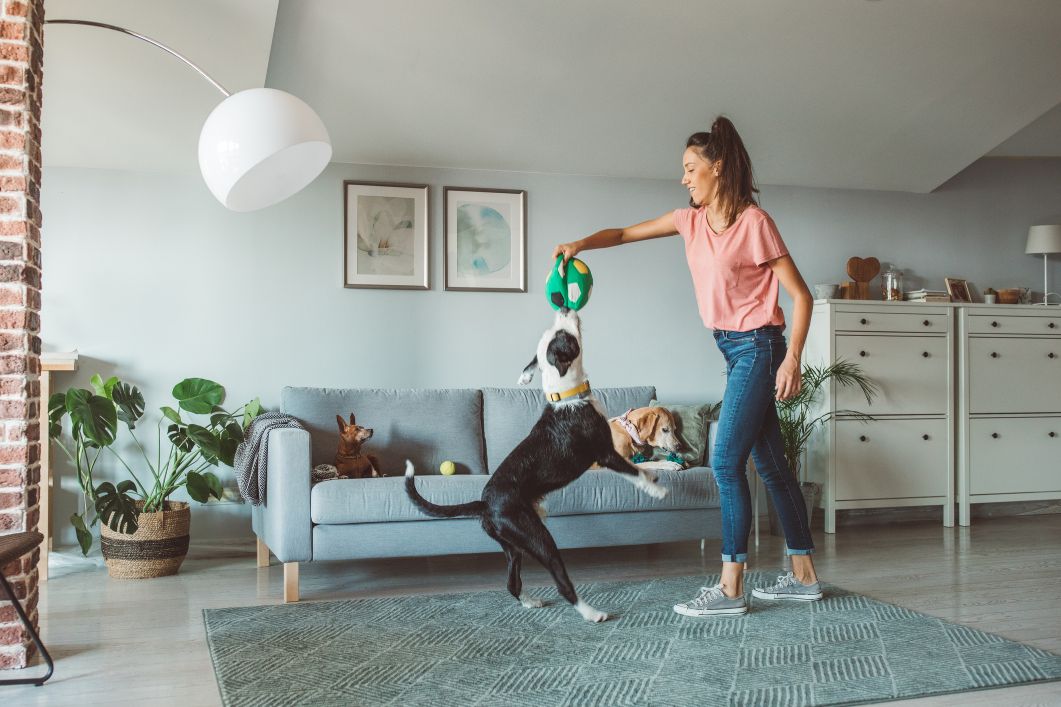Blog
Stay Out of the Heat, and Other Tips for Summer Pet Safety

The hottest day on record in San Antonio was September 5, 2011. At 111 degrees Fahrenheit, life sort of…stood still.
While that was some time ago, San Antonio residents are all too familiar with summer heat in excess of 100 degrees, a temperature that feels worse when combined with extreme humidity. We manage, though, because we know how to take extra care of ourselves in the heat. Pets, on the other hand, don’t know when to slow down and rest, which could lead to serious heat-related issues.
Too Hot to Handle
The golden rule of summer pet safety is: if it’s too hot for you, it’s definitely too hot for your pet. Place your palm or bare foot directly on the concrete to gauge how it might feel to your pet’s paw pads. Since the hottest temperatures are typically between 9 a.m. and 3 p.m., we recommend exercising with your pet before and after those peak hours.
Find the Shade
When out and about, stop frequently for breaks in the shade. Always have cool, clean water for your pet and encourage them to drink each time you stop. Many pets will continue to exert themselves, and depend on your insistence to rest and hydrate.
Pets should drink no less than one ounce of water per pound of body weight every day. If your pet spends a good amount of time outdoors and is highly active in the heat, they will benefit from more.
Water Fun
Many pet owners elevate their approach to summer pet safety by safely recreating on or near water. Investing in a snug-fitting personal flotation device (PFD) with a handle is a great way to ensure your pet stays safe. Always keep your eyes on them and be sure they have access to fresh drinking water and a shade canopy (if possible).
Dehydration
Mild dehydration can be resolved by offering frequent small drinks of water, but symptoms of dehydration can get worse quickly. Allowing your pet to quickly drink excessive water can result in vomiting (which, in turn, worsens the symptoms of dehydration). Watch for lethargy, dry or tacky gums, and ropey saliva. These are signs that your pet needs immediate veterinary assistance.
Keep water bowls full of clean, cool water. Each time your pet drinks water, give them some praise and affection.
Stay On Course
Pets should never be left in a parked car for any amount of time or reason. Owners commonly make the mistake of parking in the shade and cracking the windows, assuming that their pet will be fine for 10-20 minutes. Please be aware that interior car temperatures can skyrocket in a short amount of time, and your pet may not exhibit symptoms of dehydration or heat exhaustion right away.
Summer Pet Safety
Please call us immediately at (210) 696-1700 if you ever notice the following symptoms:
- Excessive panting
- Rapid heart rate
- Dizziness
- Unconsciousness
- Fever
Emergency care may be necessary to bring your pet’s internal temperature down and reduce the risk of dehydration.
Our team at Ten West Bird & Animal Hospital is always here to help you. Please let us know if you have any questions about summer pet safety.
